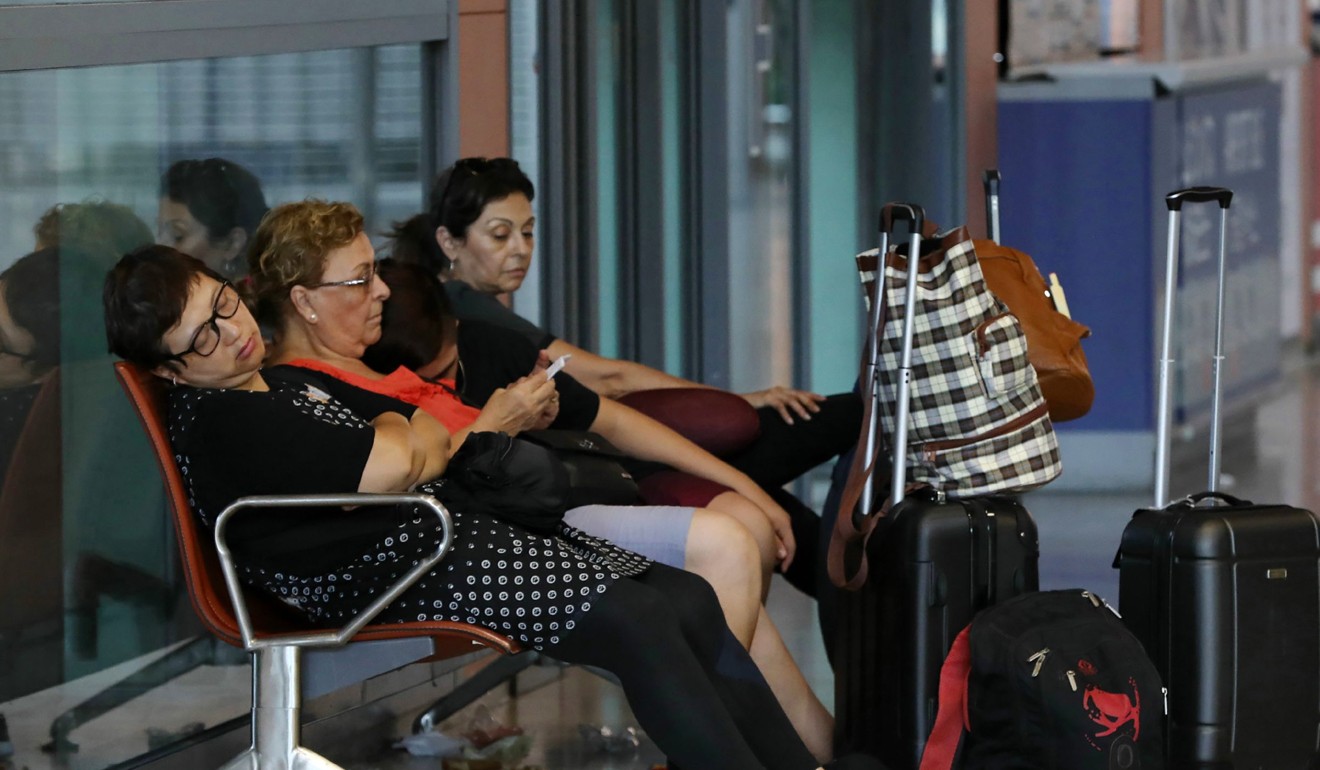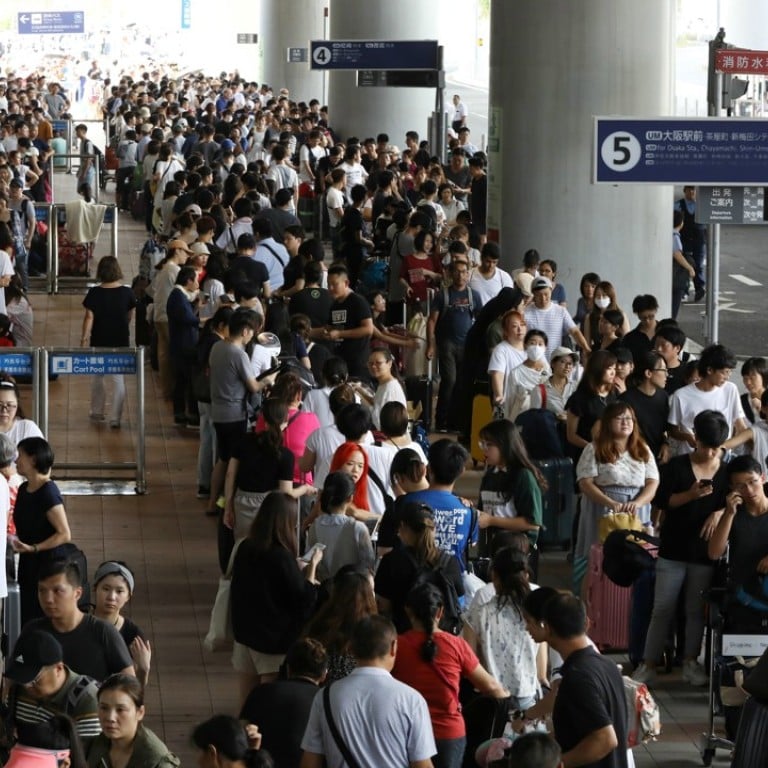
Japan’s Kansai International Airport set to be closed for a week in wake of deadly Typhoon Jebi
Thousands of passengers had to be evacuated in boats when tanker crashed into major Osaka bridge
Japan’s Kansai International Airport is facing a crippling shutdown for at least a week, with no word on when it will reopen, due to flooding brought by the most powerful typhoon to hit the country in 25 years.
More than 200 flights for Wednesday were cancelled, affecting more than 30,000 travellers, and thousands had to be evacuated in high-speed boats after a tanker smashed into a bridge linking the mainland of Osaka prefecture with the airport, which sits on a man-made island and is a major transport hub serving western Japan.
One of the two runways and the basement floor of a terminal building were flooded by high tides unleashed by Typhoon Jebi as it wreaked havoc across western Japan and left at least six people dead.
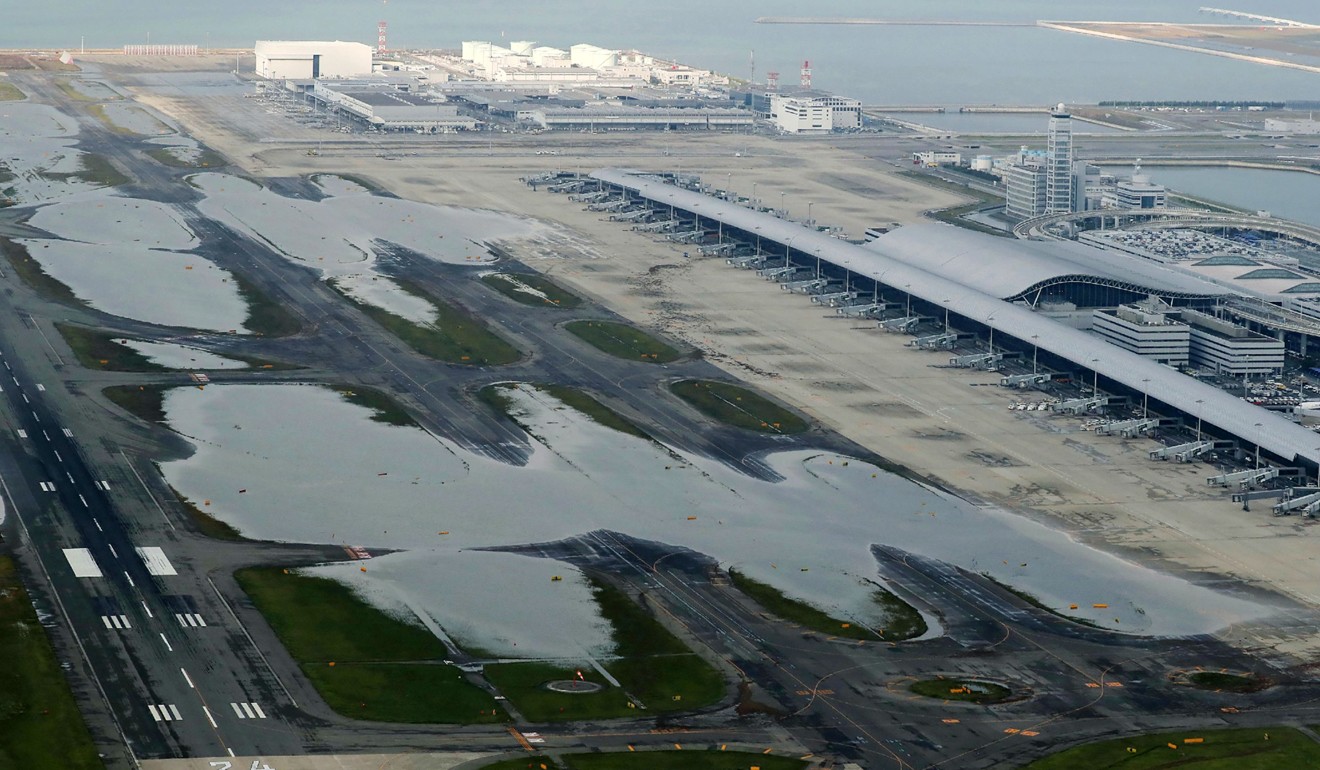
The airport’s official website described Terminal 1 as “heavily damaged” and could only say its two runways and bridge would reopen on “September 6 or later”, amid speculation that it could take as long as month.
With Osaka being a hugely popular holiday destination for Hong Kong, the Travel Industry Council said around five tour groups comprising 140 travellers were still stranded there on Wednesday, and were expected to return home via Tokyo or Nagoya between Thursday and Sunday.
Another 200 Hongkongers booked in eight tour groups from the city had to scrap their trips to Osaka because of flight cancellations.
Cathay Pacific Airways cancelled all flights to and from Osaka from Wednesday until next Monday – the city has up to 19 daily flights on that route. Special arrangements have also been made to waive charges for rebooking, re-routing and refunding ticket.
Hong Kong Airlines and Hong Kong Express also cancelled flights to Osaka until at least Sunday.
“We have five to six groups [continuing their tours] in the Osaka area,” said Yuen Chun-ning, executive director of WWPKG Holdings, parent company of Package Tours. “There are some disruptions to the itineraries as some tourist attractions remain closed, but all are safe.”
EGL Tour said two of its tour groups stranded in Osaka had returned to Hong Kong on Wednesday via Nagoya.
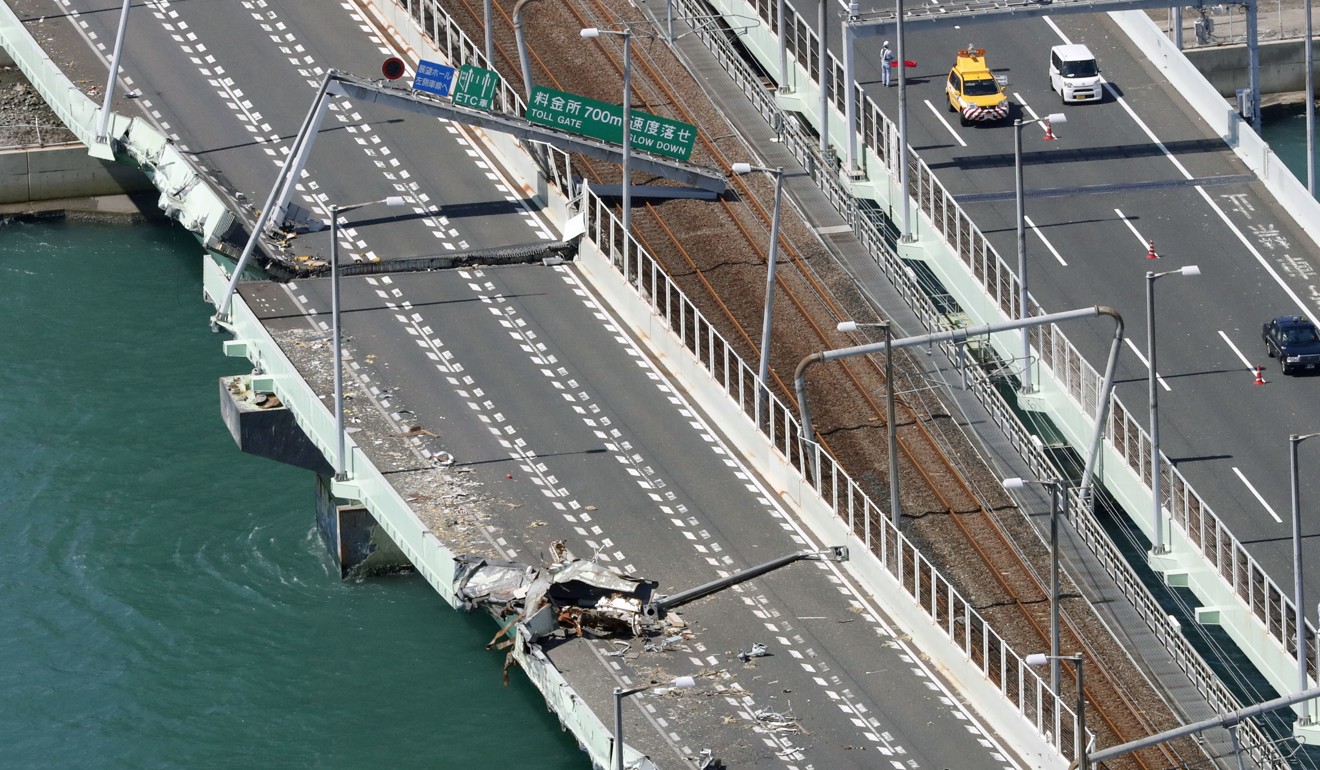
“There was no power, and foreign visitors were basically kept in the dark,” a stranded traveller still stuck in Osaka told government radio in Hong Kong. “The network was weak and we could not easily get online to check for the latest news. Restaurants were closed. It was total mayhem.”
The uncertainty over when Kansai airport will reopen is causing jitters in Japan, with tourism taking a hit in a summer season plagued by killer rains, floods, landslides and a record-breaking heatwave.
“Kansai airport is the main international airport for all of western Japan and we want to make all efforts at reopening it as soon as possible,” Japanese media quoted Osaka prefecture governor Ichiro Matsui as saying.
“But at this point, we’re still assessing the damage …. How long will it take? Passenger safety comes first but we want to limit economic damage due to its closure.”
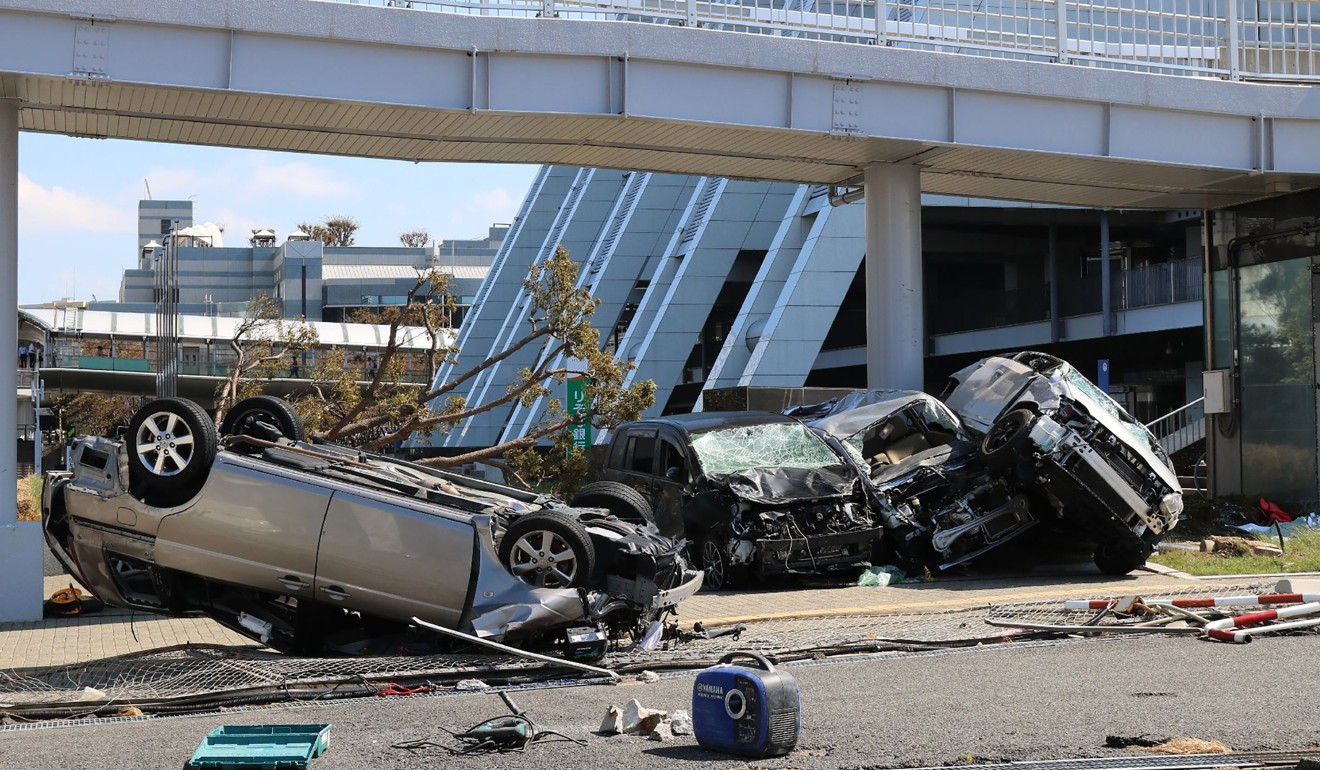
Japan has seen a surge in foreign visitors in recent years, with the number hitting a record of more than 28 million in 2017.
The country has long been a popular holiday destination for Hongkongers. In July this year alone, about 227,000 of them visited Japan, accounting for around 8 per cent of all arrivals that month.
The Japanese government is seeking to increase total tourist numbers to 40 million in 2020, when the Tokyo Olympics and Paralympics will be held.
